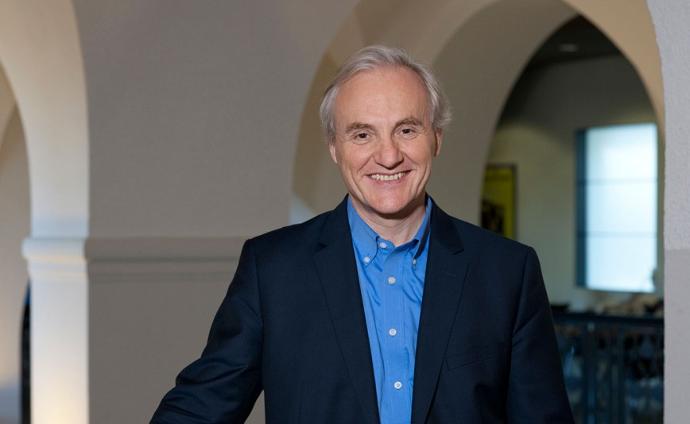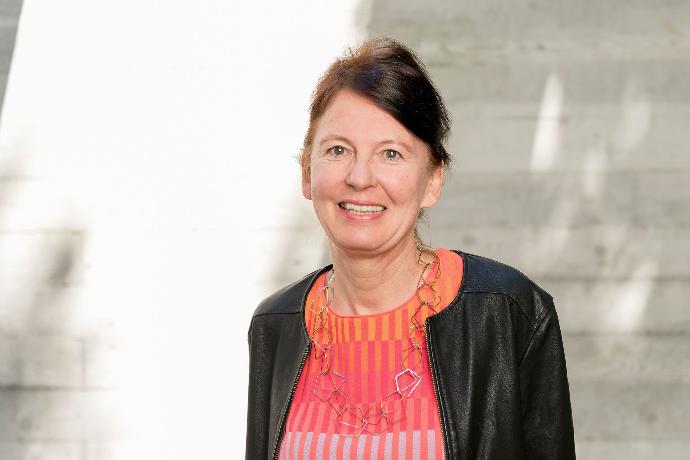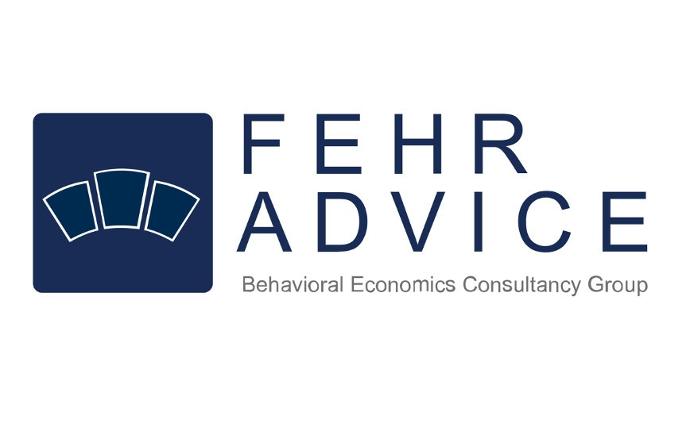Academy of Behavioral Economics – FULLY BOOKED!
High Performance Institutions THIS EVENT IS FULLY BOOKED. REGISTRATIONS FOR THE WAITLIST ARE STILL POSSIBLE.
For a long time in economic science, it was believed that human behaviour was rational. This was an error, as the past 30 years of research in behavioural economics has shown decisively. People tend towards cognitive simplifications, act contrary to their own interests, allow themselves to be significantly influenced by others... In short, in many situations they behave irrationally, indeed systematically so. Thus, irrational human behaviour is predictable.
The findings of behavioural economics are not only revolutionising science, those who draw the right lessons from typical behavioural patterns gain a strategic advantage for their organisations.
The two-day academy ‘How to design high performance institutions’ is aimed at decision makers, thinkers and advisers from business, politics and society. It gives an insight into the role of limited rational human behaviour. Thanks to introductory talks from leading behavioural economists, who will present their most recent research results in this unique forum, participants will discover how their own behaviour and that of their employees influences the performance of their companies.
The aim of the academy is for participants to learn to apply the findings of behavioural economics to their own decision-making immediately.
Three reasons to participate:
1. The most influential economists in the German-speaking region will present their latest research findings in a unique context
2. As a participant, you will complete a self-test and receive an analysis of your personal behavioural economic preferences, such as patience, risk or altruism
3. You will learn how human behaviour can be altered simply, quickly and effectively.
ReferntInnen

Armin Falk
Germany
Professor of Economics and director of the Center for Economics and Neuroscience and the Laboratory for Experimental Economics at the University of Bonn. Falk studied economics, philosophy and history, and obtained a doctorate in 1998 under the supervision of Ernst Fehr at the University of Zurich, where he also qualified as a professor in 2003.

Ulrike Malmendier
USA
Jurist (doctorate from the University of Bonn) and economist (doctorate from Harvard University). Malmendier is a professor in the Department of Economics at the University of California Berkeley. Her research focuses on behavioural economics and behavioural finance and organisational economics.

Gerhard Buurman
Switzerland
Professor of Design at Zurich University of the Arts, where he established and directed interaction and game design and design research. His diverse areas of work converge in experimental studies and different social, technical and economic settings.

Sophie Karmasin
Austria
Federal minister for family and youth of the Republic of Austria. Karmasin studied psychology and business economics and worked as a pollster before entering politics. She was managing partner at the Austrian Gallup Institute, the Dr. Karmasin Marktforschung GmbH, and Karmasin Motivforschung GmbH.

Ernst Fehr
Switzerland
Professor of Microeconomics and Experimental Economics. Fehr is director of the Department of Economics at the University of Zurich and a member of the board of directors of FehrAdvice & Partners. The “most influential Swiss economist” (NZZ) was recipient of the Gottlieb Duttweiler Prize in 2013.

Nava Ashraf
USA
Associate Professor in der Negotiations, Organizations, and Markets Unit an der Harvard Business School. Ashrafs Forschung verbindet Psychologie und Volkswirtschaftslehre auf eindrückliche Weise, indem sie mit Labor- und Feldexperimenten verhaltensökonomische Erkenntnisse im Kontext von Entwicklungspolitik in Afrika, Lateinamerika und Südost Asien testet.

Dan Goldstein
USA
Principal researcher at Microsoft Research in New York. Goldstein researches online behaviour and human decision theory. He holds a doctorate in psychology from the University of Chicago and is a sought-after speaker at conferences and management events.

Antoinette Weibel
Switzerland
Director and Professor of Human Resource Management at the Institute for Leadership and Human Resource Management (IFPM-HSG). Weibel studied economics with a focus on corporate management and politics, and obtained a doctorate on the topic ‘Collaboration in strategic knowledge networks. Trust and control as a solution to the strategic dilemma’.

Hans-Joachim Voth
Switzerland
Professor of Economics and Scientific Director, UBS Center for Economics in Society, University of Zurich. Voth’s research interests include Cultural Economics, Long-Run Growth, Sovereign Debt, Asset Market Volatility, Living Standards, and Labor Supply. His work has been published in four of the top 5 journals in economics, as well as in books and field journals. Website

Alberto Alemanno
France / USA
Professor of Law at Ecole des Hautes Etudes Commerciales Paris and New York University School of Law. Alemanno is a leading international expert and adviser in European law and politics. His most recent book is titled Nudging and the Law – What Can EU Law Learn From Behavioural Sciences?

Karin Frick
Switzerland
Karin Frick is Head of Think Tank and a Member of the Executive Board at the Gottlieb Duttweiler Institute. As an economist, she researches trends and countertrends in business, society and consumption.

Matthias Sutter
Germany
Director at the Max Planck Institute for Research on Collective Goods, Professor of Experimental Economics at the Universities of Innsbruck and Cologne. Sutter is one of Europe’s most well-known researchers on the subject. His research focuses heavily on group decision making and the question of how economic decision-making behaviour changes in adolescence. Website

Gerhard Fehr
Switzerland
CEO and Executive Behavioral Designer at FehrAdvice & Partners. Fehr advises politicians, board members, CEOs and top managers of large companies. Fehr graduated from the University of Vienna with a degree in business administration and has more than 10 years of management experience.
Programme
14.00
Session 1: Understanding behaviour: the basic principles of behavioural economics:
Welcome address from Katja Stauber, Moderator
Gerhard Fehr
Introduction to behavioural economics
Jean-Robert Tyran
Cognitive abilities and biases in management decisions
Matthias Sutter
Patience as a success driver
Ernst Fehr
Identity and social norms
Armin Falk
Social preferences
15.45
Break
16.15
Session 2: Leadership, culture and compliance
Ulrike Malmendier
Leadership and decision making
Ernst Fehr
Measuring and implementing desired norms as the basis of a sustainable corporate culture
Antoinette Weibel
Compliance – is trustful control possible?
Podium discussion
Ulrike Malmendier, Ernst Fehr and Antoinette Weibel
18.30
Break
19.00
Hans-Joachim Voth
Killer Incentives: dinner and Keynote
Friday, 29 January 2016
08.30
Session 3: Measuring behaviour
Welcome address from Florian Inhauser, Moderator
Dan Goldstein
Introduction to Big Data
Matthias Sutter
Big data – a view of behavioural economics
Nava Ashraf
Field experiments – leveraging human nature for social impact
Armin Falk
Global prominence of behavioural economic preferences
10.00
Break
10.30
Session 4: Influencing behaviour, part 1
Antoinette Weibel
Evidence-Based HR
Gerhard Buurman
People play for play’s sake – the measurability of incentive and behavioural effects in game situations
Podium discussion
Dan Goldstein, Nava Ashraf and Matthias Sutter
12.00
Networking lunch
13.30
Session 5: Influencing behaviour, part 2
John Balz
Big behaviour – how combining big data and behavioural science makes for better marketing
Alberto Alemanno
Personal default setting
Podium discussion
Sophie Karmasin, John P. Balz, Moderation Florian Inhauser
15.15
Break
15.45
Session 6: Outlook
Karin Frick
Short summary and outlook from the perspective of trend research
Matthias Sutter
A Smart Outlook – How Behavioral Economics Shapes Big Data
17.00
Conclusion and drinks
Information
Date
28 January - 29 January 2016
Language
German and English
Venue
Fees
Early Bird Special Eagle: CHF 3200.00 (up to May 31, 2015)
Early Bird Special Hawk: CHF 3700.00 (up to September 30, 2015)
Early Bird Special Owl: CHF 4150.00 (from October 1, 2015)
The conference fee has to be paid in advance and includes all food and beverages (including VAT), except accommodation. Participants registering less than two weeks before the event can pay by credit card only.
TeilnehmerInnenliste
Documentation
Über die Academy of Behavioral Economics
Die Academy of Behavioral Economics richtet sich an Entscheider, Denker und Berater aus Wirtschaft, Politik und Gesellschaft und wird in Kooperation mit dem Beratungsunternehmen Fehr Advice durchgeführt. Die Academy gewährt Einblicke in die Rolle des nur beschränkt rationalen, menschlichen Verhaltens sowie dessen Konsequenzen für Unternehmen, Märkte und Gesellschaft. Dank Impulsreferaten der weltweit führenden Verhaltensökonomen, welche in einmaligem Rahmen ihre aktuellsten Forschungsergebnisse vorstellen, und Persönlichkeiten aus Politik, Wirtschaft und Verbänden erfahren die Teilnehmenden, wie ihr eigenes Verhalten sowie jenes ihrer Mitarbeitenden und Partner die Performance von Organisationen beeinflusst.
Vergangene Konferenzen
Academy of Behavioral Economics 2020
Trust and Facts: Better Decisions in an Age of Growing Populism
Academy of Behavioral Economics 2019
Bessere Entscheidungen im Zeitalter von Künstlicher Intelligenz
Academy of Behavioral Economics 2021
Remote Leadership: Scientific Evidence, Facts & Solutions
Date & Time
Thursday
28 January 2016
Friday
29 January 2016
Location
GDI Gottlieb Duttweiler Institute
8803 Rüschlikon
Switzerland

